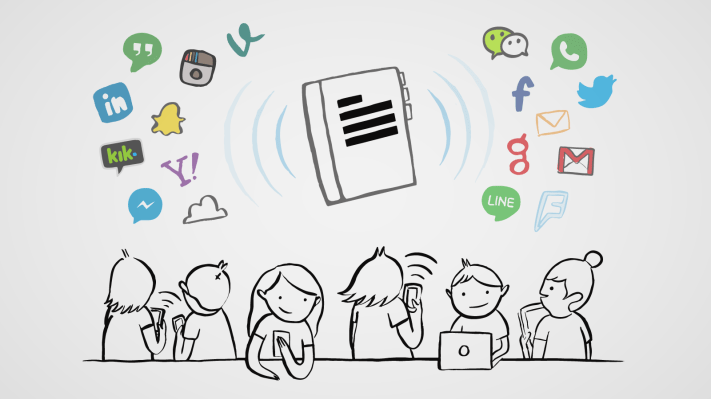We’ve heard a lot about software eating the world; now a company that has built its business around food is now eating up a software startup. Restaurant Brands International, owner of Burger King and Horton’s, is acqui-hiring the team from Brewster — the service that lets you unify address books from disparate apps into a cohesive whole. Founder Steve Greenwood and his team of nine will be joining RBI, with Greenwood taking the title of president of digital and reporting directly to CEO Daniel Schwartz.
“I’m thrilled to have Steve and his team join us to lead our digital efforts and excited about our shared vision toward building a digital-driven company,” Schwartz said in a statement.
Brewster the app is not joining RBI, and RBI is not acquiring any of the data from the app. But RBI has agreed to let Brewster’s former staff continue to maintain it on the side. That means Brewster will continue as before, including serving new and existing users and maybe even some updates. The app had both a free and premium tiers, with “millions” of users, according to Greenwood. Brewster’s team will also remain in place in its current office in downtown NYC, essentially taking on a role at RBI as an in-house-offsite new ideas incubator.
At a time when many people are wondering if the tech world has trapped itself in an over-inflated bubble that is bound to pop, Greenwood claims that the decision to move to RBI was not a defensive one. Brewster is generating revenue — he wouldn’t say how much but did say that the app has premium users (it charges $9.99/month or $99/year for services like real-time synchronizing, automatic smart delete and contact merging).
He adds that it wasn’t about the company unable to raise money or find a buyer. Brewster raised an undisclosed amount of money from Union Square Ventures and others in 2012, and launched with some buzz for solving a real pain point — contacts management — in a magical way.
But then it also went through some bumps as its original iOS app lost steam on the App Store, staff departed, and Brewster itself rethought what it was trying to achieve as native platforms like Apple’s and Google’s tackled contacts themselves.
But Greenwood says the decision to jump to RBI was more a matter of other circumstances: a mutual friend introduced him to Schwartz and the two of them got to talking about RBI’s interest in building a digital company. “He was excited by our team and what we’re building and our thinking about product and technology,” Greenwood says. “He wants to bring startup DNA and a digital mindset to lead this.”
It’s not clear what Greenwood and his team will be working on first, but Greenwood notes that their experience is in consumer apps rather than building enterprise tech for RBI’s employees.
They will also spend a bit of time integrating with the teams at RBI who already work on tech projects. Hortons and Burger King are already active in areas like apps and social media — where BK has admittedly had its share of mishaps. Greenwood describes RBI today as “traditionally offline.”
There have been a number of other attempts to build or acquire/embed fleet-of-foot startups within bigger organizations as a way of hatching new ideas, not all of them a success.
Still, the fast food industry is now worth over $500 billion annually and not going anywhere soon, and competitors like McDonald’s are always trying to leverage advances in tech to bring their own businesses into the 21st century. That leaves fertile ground for RBI, active in 100 countries, to see what the Brewster team may cook up in its new home.
